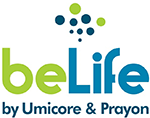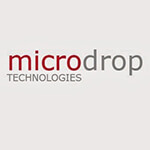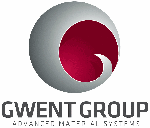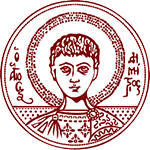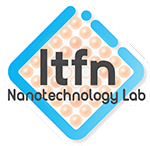Umicore generates the majority of its revenues and dedicates most of its R&D efforts to clean technologies, such as emission control catalysts, materials for rechargeable batteries and recycling. Umicore’s overriding goal of sustainable value creation is based on an ambition to develop, produce and recycle materials in a way that fulfils its mission: materials for a better life.
Since it was founded in 1906 LEITAT Technological Center has been specialized in production technologies. Currently, LEITAT develops R&D activities in the areas of materials sciences, environment, surface treatments, renewable energies and nanosafety with deep knowledge and experience in technological transfers to several industrial sectors. LEITAT takes part each year in many projects financed by the regional and national governments, participates in projects co-funded by the European Commission, and develops private R&D projects funded by industrial partners. LEITAT is recognised by the Spanish Government as a CIT (Centre of Technological Innovation) and is one the 5 Technology Centres that is accredited by the Regional Government of Catalonia. Finally, it is member of FEDIT (Federation of Technological Centres in Spain) and the IT Network of the Catalan Regional Government.
beLife is a joint venture created by Umicore and Prayon to develop and produce phosphate-based cathode materials for use in lithium-ion rechargeable batteries.
The joint venture was set up in May 2012 on a 51 (Prayon):49 (Umicore) ownership basis. Both Belgian companies had been developing lithium iron phosphate (LFP) technology independently for a number of years. Combining their strengths will enable beLife to address the growing market demand for high-quality battery materials.
beLife will initially focus on developing advanced, cost-competitive product and production process for LiFePO4.
microdrop Technologies is the leading provider of dispensing equipment, software, and services for advanced microdispensing and inkjet printing applications.
Our team of scientists, engineers and technicians has more than 15 years of experiences in inkjet-technology and microfluidics. We focus on high quality products and services for industrial applications and R&D purposes as well. Our products range from single dispenser systems up to our dispensing system with up to 8 dispenser heads and positioning unit.
For the best benefit we provide our customers a number of services like training, dispensing tests, prototyping and customized solutions. Microdrop is in involved in several R&D projects on material deposition and inkjet printing in cooperation with industrial partners or by public funding.
Genes’Ink is offering a large range of conductive and semiconductive inks for printed electronic applications.
Genes’ink’s products are made of active nanoparticles synthesized in our manufacturing facilities, and incorporated in unique coatings and ink formulations.
Compatible with roll to roll printing methods, our products give high performances onto flexible substrates and offer a true alternative to commonly used deposition methods.
Founded in October 2010, Genes’Ink has a unique knowhow in the field of conception and production of nanomaterials:
- We have developed an industrial process to synthesize metal and metal oxide nanoparticles from mg to kg scale
- We provide to our customers tailor made inks formulation by controlling the metal loading, choosing the right solvents or using suitable additives
Genes’Ink offers a full range of commercially available products and services to our customers:
- Off-the-shelf and customized inks derived from silver and zinc oxide nanoparticles for printed electronics applications
- Tailor made solutions according to the customer’s specifications
Our company makes mostly inks and pastes, so that other companies can produce the components, biosensors, sensors, circuit boards, etc.
In general terms we seek out the Manufactures of Sensors, Biosensors, Electronic components, and other users of conductive inks.
JSR is a research-oriented organization that pursues close collaborations with leading innovators in a number of industries that are key to the present and future welfare of human society: life-sciences, energy storage, electronic materials, display and optical materials.‘Innovation one-on-one’ summarizes our value proposition to our customers. Through a very early and close collaboration JSR offers its customers a competitive advantage based on leading edge technologies, consistent high quality and balanced cost of ownership.
Our Slogan “With Chemistry, We Can.” illustrates JSR’s commitment to society through innovation in chemistry. Making the impossible happen: growing a Sakura tree in a desert.
VMB is a medium size battery manufacturer at Ellwangen in the southern part of Germany. VMB employs nearly 750 persons in Germany and approx. 2000 worldwide. The entire Research, Engineering and Production of the electrochemical cells are done at Ellwangen.The product range of VMB contains small batteries for portable devices, like Hearing Aids, Computers, Car Electronics and Heat Calorimeters. In the last years this portfolio was extended to automotive traction batteries in the Joint-venture Volkswagen VARTA Microbattery ForschungsgesellschaftmbH (VWVM) and storage batteries in the order of 5 – 13 kWh in the VARTA Storage GmbH (VS).
VS will be the end-user for the Use Case “Storage of green energy at home”. It will be involved in the project from the first moment.VMB also has developed a very small Lithium-Ion-Cell with winded electrodes. It has the shape of a button cell. The overall volume is in the range of 0,5 – 2 cm³. The product is brought into market and received a large interest of the manufacturers of small electronic equipment, like headset, sensors …The work in the consortium can help to improve these cells and gain the competitiveness versus the far-east competition.
The Aristotle University of Thessaloniki (AUTh) is participating in the project with the Laboratory for Thin Films - Nanobiomaterials, Nanosystems & Nanometrology (LTFN) which is established at the Physics Department.
LTFN has an experience of 23 years in Thin films Technology, Fabrication of nanostructured materials & nanoparticles, developing/deploying in-situ & real-time monitoring techniques, modeling and Nanometrology. LTFN programs strive to interact with Academia, Research Institutes and Organizations and Industry and to transfer its technology to scientific and industrial users and developers and provide excellently educated graduates and research associates to society. The main research activities of the LTFN are focused on the topics: Thin Films & Nanomaterials Technology, Organic Electronics & Plasmonics, Nanobiotechnology & Nanomedicine, Optical Technology & Nanometrology, Characterization, Plasma Treatment & Surface Engineering, Computational Modeling at Nanoscale.





